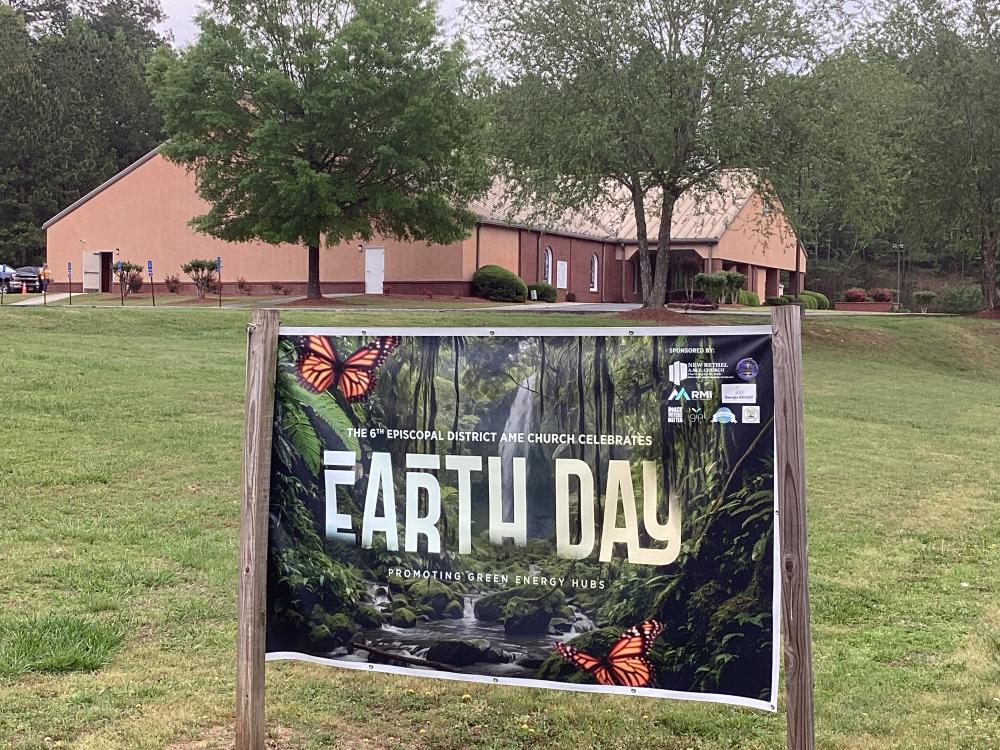Microgrids go to church in Georgia. The African Methodist Episcopal (AME) Church Sixth District has developed a groundbreaking renewable energy program to create microgrids in churches in the entire state. The initiative starts with a goal to install five systems in 2026.
Consisting of all Ame churches in the state of Georgia -482 church locations that can ultimately use microgrids to stimulate the resilience of the community and energy independence -marks the initiative of the sixth district an important step in the continuous dedication of the Ame -Church to the Environment Management.
Since 2023, the sixth district has been developing this innovative program, which includes the installation of solar panels, charging stations for electric vehicles, battery storage systems and the implementation of energy efficiency measures. The program also introduces bidirectional charging technology, so that church facilities can serve as energy hubs and resilience centers for their communities, where members of the community can charge medical equipment, store medicines and seek shelter in an emergency.
With a typical solar energy system that is expected to generate an average of 70 MWh per year per church, it is expected that each system will compensate around 93.5% of the annual energy consumption of the church and pay itself after just eight years. Systems are usually operational for more than 25 years. Together, the 482 church locations of the sixth district represent around 34 GWH of potential annual production capacity.
“This initiative is proof of our dedication to the care of God’s creation and serving our communities,” said Bishop Michael Leon Mitchell, President Prelate of the Ame Church Sixth District. “Microgrids offer the possibility to solve so many problems in one go, including strengthening our communities to be better confronted with adversity, to save money on accounts for utility companies and to reduce pollution. By embracing clean energy technologies, we reduce our impact on the environment and bringing advanced solutions.”
The program builds on the resolution of the Ame -Church, which has committed the denomination with climate action and the support of policy that creates healthy communities and a future energy future. This resolution was hired at the 50th General Conference in Philadelphia, outlined the biblical basis for tackling climate change and encouraged churches to take practical steps in the direction of sustainability.
Georgia is particularly sensitive to utilities associated with extreme weather conditions, including Hurricane Helene, who eliminated power in September 2024 for over 1.3 Million residents throughout the state. Some Ame church congregants were without electricity for more than 3 weeks. The electricity accounts of Georgians are also higher than the national averageExpected with more speed increases.
Bisschop Reginald T. Jackson, chairman of the Social Action Commission, emphasized the importance of this program: “Our resolution was just the beginning. Today’s announcement shows our continuous dedication to our belief in action. By creating these Microgrids, we reduce our carbon footprint and increasing resilience in our community.”
To date, with the help of faith-based non-profit environment Georgia Interfaith Power & Light (GIPL), The sixth district has completed feasibility studies for 13 churches and wants to have completed a total of 70 studies towards the end of the year. This ambitious goal underlines the dedication of the church to fast and meaningful action on climate change. By 2026, the church wants to install five systems in Sixth District Churches, with the ultimate goal of creating Microgrids at as many 482 church locations as possible.
“The Microgrid program of the Ame Church is a radiant example of faith-based climate leadership,” said Codi Norred, executive director of Gipl. “By combining practical solutions with community involvement, they create a model to inspire and guide the sustainability efforts of other religious communities.”
Pastor Thurmond Tillman of the First African Baptist Church in Savannah, one of the pilot churches for this initiative, expressed his enthusiasm: “If a community rooted in faith and history, we acknowledge that care for our environment is an extension of our spiritual duty. This Schone Energy Program enables us to be a better Rentmeester.”


Pastor William E. Thomas Jr. Van New Bethel Ame Church added: “Faith and action are inseparable. By embracing clean energy, we ensure a sustainable future for our communities and steps to ensure God’s creation. This program reflects our deep dedication to stewardship, resigning and progress in confronted challenges.”
To support the implementation of this ambitious vision in the field of clean energy, the Ame Church Sixth District will collaborate with Capital Good Fund, a Non -Profit Community Development Financial Institution (CDFI) and a federal beneficiary under the Zonne energy of the Environmental Energy. Solar for All is a national initiative to bring the benefits of solar energy for low-income and disadvantaged communities that have previously had less access to solar energy.
“Churches are critical partners in the transition of clean energy,” said Alicia Brown, director of the Georgia Solar for all the program. “If the community has a need or a disaster state, they are often the first organizations that get up and offer help. We are proud to work with the Ame church in this daring initiative to build resilience hubs, to train the next generation of Zonne employees and to give meaningful savings to churches and the households they serve.”
The Clean Energy program is a supplement to the existing environmental initiatives of the AME church, where members are encouraged to plant trees, create community gardens, buy climate-friendly devices, recycle, compost and opt for environmentally friendly event options. While the sixth district of Ame Church is starting this groundbreaking journey, it remains his mission to serve to serve the social, spiritual and physical development of all people, while taking daring steps to take on the urgent challenge of climate change.
“Historically, the black church served as a pillar of hope, inspiration and progress within southern communities,” said Fenika Miller, Fellow of Economic Recovery Corps. “This Microgrid initiative enables southern black municipalities to continue that legacy of leadership and invites new beliefs to reconsider how worship houses can be used to build more environmentally friendly and economically sustainable and flourishing communities.”
Nationally, Microgrids play an increasingly important role in offering resilience and energy independence in subordinated areas without contributing to pollution to already overburdened population groups and environmental law communities. In 2022, that of the country First Neighborhood Microgrid came online in the historic black community of Bronzeville in Chicago. Progress Village became in 2023 The first black community of Florida that builds a community -microgrid.
“This Microgrid initiative is really groundbreaking,” says Melinee Calhoun, Senior State Organizing Manager, Black Voters Matter Fund. “It is a powerful example of what collective power structure looks like in action. We are proud to stand with our Ame Faith leaders while they work to tackle energy brades, resilience and other climate-related challenges that influence black communities.”
Tags: Microgrid, Microgrids

